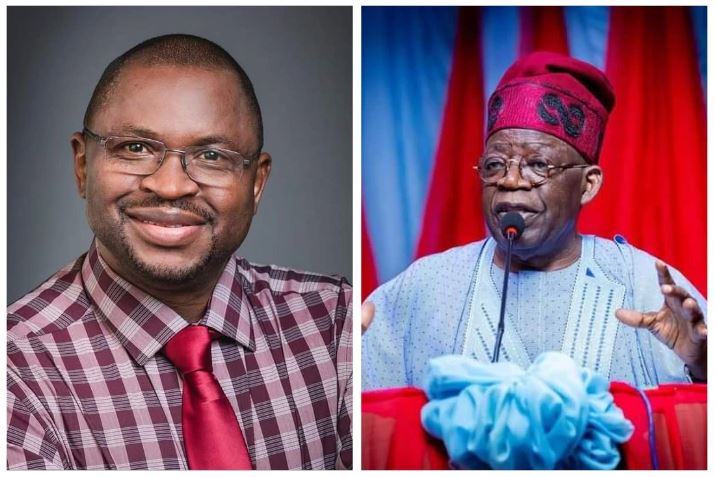GROpinion
Fayose – 1, EFCC – 0…How?


By Abimbola Adelakun (Punch Newspapers)
Given the gragra of the Economic and Financial Crimes Commission over their invitation of the immediate past Governor of Ekiti State, Ayodele Fayose, one would have thought that the moment he arrived at their office, they would lay him on the floor and flog him with a horsewhip. As things have unfolded so far, it turned out that the invitation was more of routine questioning. They might genuinely have a dossier on him, but it is doubtful his case has been neatly investigated, sealed watertight, and ready for prosecution in a short time. His Tuesday appearance in their office is the fanfare that precedes almost all the EFCC cases that eventually go cold. Ideally, when an organisation that investigates crimes invites you for a “chat” as the EFCC did, it means their homework is complete and without a good lawyer accompanying you on that journey, you are as good as gone.
In Nigeria, such invitations have so lacked administrative efficacy that politicians manipulate the summonses to their benefit. They turn what should be a serious process into a pilgrimage; their journey to and through martyrdom. You do not get to brand yourself an “opposition politician” in Nigeria until the EFCC sends for you. Their attitude is helping politicians construct the persona of victimisation. Recall that earlier this year, shortly after the Peoples Democratic Party lost the election in Ekiti, the EFCC posted a tweet where they suggested they would be going after Fayose. The timing of the tweet, its vengeful and flippant tone, combined with the rancorous aftermath of the Ekiti election, all made the EFCC invitation to him suspect. Is this about justice or about repressing the politician who has become the All Progressives Congress’ nemesis?
Fayose’s theatrics at the EFCC office are a joker, and he could pull that card on them because they do not take themselves seriously enough. Fayose arrived at their headquarters wearing a black T-shirt with an inscription: “EFCC, I am here.” That level of boldness was already a touchdown. He was accompanied to the EFCC office by Rivers State Governor, Nyesom Wike, and the former Minister of Aviation, Femi Fani-Kayode. Before, Fayose’s visit, he claimed he had moved to Abuja to counteract any impression the EFCC might have that he was running out of Nigeria. He told reporters that if he had stayed in Lagos, they might imagine he was trying to escape the country. By going to Abuja, he won a major PR victory on their back. Fayose’s action is now going to be a devised formula for other politicians summoned by the EFCC. The strategy will be to stupefy the EFCC by taking the battle to their turf.
Here is one thing to remember as we criticise Fayose: He did not invent this drama, he only infuses it with his own brand of crass politicking and madness. What he did with the EFCC on Tuesday was similar to what Bola Tinubu also did in 2011 when he was tried in Abuja for allegedly operating foreign accounts while he was Governor of Lagos State. Tinubu was accompanied by three South-West governors whose presence not only helped to make light of the accusations of corruption, his party — the then ACN — also claimed that they were being victimised by the “repressive PDP government” because of their opposition politics. In 2014 too, when the current Governor of Kaduna State, Mallam Nasiru el-Rufai, was invited to the DSS office to be questioned for some inflammatory comments he had reportedly made, he too went there with aplomb. El-Rufai was driven by then Rivers State Governor (why always Rivers!), Chibuike Amaechi (who is now Buhari’s Minister of Transportation), and a then serving senator, Chris Ngige (now Minister of Labour). They too alleged that el-Rufai’s invitation was a ploy by the PDP government to silence their activities as opposition politicians. Today, they are the party in power, and the old script of intimidating the opposition is still being re-enacted. We are stuck in this same rut, cycling passionately to nowhere.
The difference now is that Fayose refuses to play the victim in the conventional way. He is neither acting meek nor intimidated; instead, he is showing himself as deranged. His intended audience will construe his action as bravery, a brash display of manly strength; the very kind one needs to survive the excesses of the Nigerian madhouse. Fayose will be cast as the hero; a roughly hewn Robin Hood who robs the Nigerian political class of some of their hypocritical pretence so that the poor and downtrodden can feel better about their disempowerment.
If there is any lesson for us in Fayose’s EFCC drama, it is that we urgently need our institutions to be apolitical and their activities divested from the politics, or the perceived politics, of the ruling party. Our bureaucracies regularly function as an extension of the President’s mood. When Olusegun Obasanjo was in power, it was not a coincidence that most of those who were hounded by the EFCC were his political enemies. The same is almost true for every government that has been in control since then. When the PDP was in office, the APC was the victim of repressive state power. Now that their positions have flipped, the PDP is the new victim. Tomorrow, if the PDP gets back to Abuja, the APC will be the victim. For how long do state institutions want to suffer credibility issues when they should be cultivated into efficacious, autonomous and respected organisations?
One final point: Lately, at the nation’s Independence Day Gala Night in Abuja, Vice President Yemi Osinbajo turned the occasion into an opportunity to diss his fellow politicians. The one he said about the Osun State PDP governorship candidate, Ademola Adeleke, convinced me that their party still lacks reflexivity. Osinbajo was quoted to have said, “Yet another very important politician insists, and still insists that the most important attribute for leadership is dancing, and boy could he dance! And for those who think that that is ridiculous at least 200,000 people voted for him in a particular election.”
Come on, if not for the high-handedness of the APC, Adeleke would have disgraced them properly in that election. The same is likely true for Ekiti State election. If it was truly free and fair, the APC would be out in the cold by now. If Osinbajo paid better attention to things, he would find it was not “ridiculous” that more than 200,000 people voted for a man who should be considered a clown; better suited for entertaining children at birthday parties than for a serious leadership position. Yet, it bears thinking: When voters throw their votes in the direction of candidates who hardly come with a little more than their proclivity for showiness, those people see through the mess and want their realities to align.
They are tired of the insufferable yet suffocating self-righteousness of the APC that purports to fight corruption while it perpetuates the same; a band of leaders that feed their impoverished populace with promises and propaganda; the lovers and venerators of soul-crushing poverty. People look at the noise the APC makes about the PDP’s corruption and they cannot reconcile it with the acts of the APC; they cannot understand while the EFCC will put up a tweet threatening Fayose that they were coming for him while they are deaf and dumb on the videos of Abdullahi Ganduje allegedly caught on video receiving bribes.
When you have a polity where crime and punishment are mediated by which political camp a politician belongs to, you should not blame people for casting their votes for those who do not pearl clutch nor pretend that there is anything ennobling about leadership process in Nigeria. There is nothing “ridiculous” about people who are forced to choose between odious choices passing over the pretender for the drama queens.
[Note, this article was first published by the Punch Newspapers]
Columnists
Cybersecurity in 2024: Towards Ever Greater Sophistication of Tactics


Writer: CHESTER WISNIEWSKI, Director Global Field CTO, Sophos
With 2024 fast approaching, what are the results for 2023 and what are the developments in the threat landscape for this new year?
The year 2023 was marked by persistence in the tactics of cybercriminals, with the predominance of ransomware, the exploitation of vulnerabilities, theft of credentials and even attacks targeting the supply chain. The common point in all his attacks is their formidable effectiveness.
It is therefore essential to ask what trends will persist in 2024 and what strategies businesses should adopt to deal with these future cyber threats.
Between persistent trends and evolving cybercrime tactics
In 2024, the threat landscape is not expected to change radically, particularly with regard to attack typologies and criminal tactics and procedures.
Criminal groups still primarily focus their attention on financial gains and ransomware remains their weapon of choice. These cybercriminals tend to take the easy way out by opportunistically attacking unpatched security vulnerabilities.
The recent Citrix Bleed attack demonstrated the agility of cybercriminals when it comes to quickly and effectively exploiting these new vulnerabilities.
However, once patches are applied to these vulnerabilities, cyberattackers tend to revert to more common strategies of stealing credentials or, failing that, cookies or session cookies, which, while slightly slower, constitute always a proven means that allows them to penetrate within a system.
In 2024, however, we should expect increased sophistication in defense evasion tactics, particularly due to the generalization of certain technologies such as multi-factor authentication. These attacks will combine malicious proxy servers, social engineering techniques and repeated authentication request attacks or “fatigue attacks”.
AI and regulations will continue to shape cybersecurity
In 2024, the development of AI will have a positive impact on the efficiency of IT teams and security teams by enabling them to strengthen defenses and work more efficiently, including through the processing of vast volumes of data in the aim of detecting anomalies. It should make it possible to respond more quickly in the event of an incident.
Indeed, analysis of attacks in 2023 showed a shortening of the time between network penetration and the triggering of a final attack – using malware or ransomware. The need for rapid detection and response tools to prevent costly incidents is therefore essential.
Finally, regulatory developments could have a major influence on measures taken against ransomware. The need to take more substantial measures could push some states to penalize the payment of ransoms, which would represent a brake on malicious actors and change the perspective of companies in the event of an attack.
Other stricter legislation, such as the implementation of the European NIS2 Directive, is also expected to force companies to take additional measures, particularly regarding their abilities to collect data sets.
To protect themselves against increasingly rapid, effective and costly attacks, companies will need to strengthen their defenses by equipping themselves with tools that allow them to detect and respond to incidents more quickly.
The worsening cybersecurity talent shortage does not appear to be as serious as some studies claim. On the contrary, companies have implemented more lax hiring criteria and more open-mindedness in the recruitment process.
From this perspective, to guarantee their survival in a constantly evolving threat landscape, companies have every interest in establishing partnerships with cybersecurity experts whose main mission is to make the hyperconnected world safer, to advise and assist them. in setting up effective defenses.
GROpinion
The Internal Threat: The Hidden Face of Corporate Threats


Businesses today face many threats; but if those coming from outside are their main source of concern with a priority focus on ransomware, they too often forget to consider internal threats which can be just as devastating.
In fact, they take less time to assess the adaptability of their internal security measures in case a cyberattacker manages to break through their defenses from the inside and recover sensitive data that is easily accessible to him. So, what are the means to put in place to detect these threats and respond to them effectively?
The sources of these insider threats are diverse and very often undetected or detectable. They can thus be the result of negligence or even malice.
They can, for example, come from an implementation of relaxed security controls that do not apply to certain systems, or from a lack of logging and identification of these malicious activities.
Although, difficult to measure – since they are rarely the subject of dedicated reports – these internal attacks have already affected many companies.
What are the reasons for the appearance of these threats?
Intentionally or not, insider threats are legion. For example, when an employee carelessly forgets a USB key containing copies of critical information on the train, he then neglects to comply with all the rules in force.
This type of situation can be tragic for the company since there is therefore a risk of theft or public exposure of information that could lead to a violation of official regulations imposed by a governing body (usually GDPR, PCI and HIPPA) or by several regulatory bodies’ premises.
The company must then be extremely transparent by disclosing to its employees – and more broadly to the general public – that it has been the victim of a data breach within the organization, and it must also be held accountable. of all actions associated with this data breach.
But it can also be actions triggered intentionally for a wide variety of reasons. An employee may, for example, realize that he has the possibility of carrying out a malicious action in his workplace because of relaxed controls or because he has high visibility.
This type of situation can lead to the theft of confidential information belonging to the company. The employee then seizes this opportunity to harm the company with impunity.
Various flaws and patterns
Cybersecurity experts have identified three distinct insider threat motives which are revenge, greed, and inattention.
The first two reasons include, for example, intentional and accidental acts, and are more likely to occur following a dismissal or a resignation. However, these reasons vary according to the type of activity of the company.
In the case of the defense sector, it can be corruption or espionage, unlike the ICT sector, where commercial data theft is more widespread.
Employees in charge of selling products and solutions can thus save their customers’ contact details in files and programmers can steal the source code. Despite their media coverage, on the whole, cases of espionage or sabotage remain, fortunately, exceptions.
More generally, data leaks are often caused by insider threats, when sensitive information belonging to the company becomes “uncontained”, when it should be classified confidential according to the operational context.
This information then becomes “public” and people whose position has nothing to do with it can consult it. Very often, when businesses are faced with such accidental data loss or leakage, it is the result of carelessness, inadvertence or clumsiness – such as the loss of mobile devices, USB storage media or public exposure of repositories stored in the cloud.
The classic example of accidental data release comes from the use of the “To” and “CC” fields when sending an email to multiple external recipients, where personally identifiable information is exposed to all of these recipients; a situation that could have been avoided by using the “CCI” (blind copy) mode.
Finally, data destruction is also a typical action where the integrity and availability of data is taken away from the business.
This has the effect of preventing him from accessing critical information, which can directly impact the operational capacity of the company. While this activity is mostly associated with ransomware operators, it can also be attributed to insider threats.
It should be borne in mind that there are many reasons that could lead to such acts, but the main reason remains that the data is generally stored in a weak way, which allows too many people to access information that has nothing to do with the tasks entrusted to them.
These people can steal sensitive data for revenge, but also destroy it or remove it from the company or even try to extort its return.
How can we best respond to these threats?
The implementation of a strategy to prevent these internal threats remains difficult to implement, since once the attack has been launched, anticipation and control are already outdated. It is therefore extremely important to set up preparation sessions aimed at determining the impact of these attacks.
Thus, training employees in the correct use and understanding of internal company systems and processes can go a long way towards avoiding errors associated with accidental data leaks.
In addition, it can be useful to turn to several solutions and tools such as file and document management systems to better manage the critical data that the organization has in its possession. ZTNA limits access to only required tools/services/apps rather than everything on a company’s LAN.
It is also possible to employ Data Leakage Prevention (DLP) tools, capable of preventing accidental data leaks – except in the case of intentional theft. XDR systems and firewalls can also be very useful as part of the disaster prevention and recovery plan because they allow DLP to be implemented and log access and data movement at the same time. Their actions facilitate forensic work, particularly in understanding failures and their consequences.
Finally, the implementation of technical controls capable of regulating access to data and systems that contain sensitive information, as well as the monitoring of the results of these controls and the responses to violations of the security policy contribute to the detection of ‘a malicious attack in progress.
To protect their company and their employees from these internal threats, managers must imperatively limit access to the data to the persons concerned and ensure the implementation of strict controls on the most sensitive data, while providing them with the support they need.
In essence, therefore, the right balance must be struck between people, process and technology, since any imbalance can favor the introduction of instability, as well as an easier increase and spread of risks – whether they either external or internal to the company.


I’ll start on this by referring you an earlier piece I had written on 17 April, 2021 about Professor Farooq Kperogi when he attempted to hoodwink his readers and Professor Pantami that he was the latter’s friend but still went ahead to disparage him by spewing lies and supposed private matters on the Professor, the piece can be read here.
At that point, I had just switched from being his ardent fan to seeing him for who he really is, a propaganda merchant who thrives on the docility of Nigerians to cash out.
Kperogi had to acknowledge that article as it bursted his little games on 24 April, 2021 in his column tagged ‘On my friendship with Pantami’ and which can be read here.
I read Kperogi piece of today 11th February, 2023 where he attempted to as usual disparage Buhari’s naira policy and linked it as a ploy to stop a BAT and I found the analogy in it very ludicrous to say the least. I wonder why Kperogi has developed a permanent feeling and understanding that Nigerians are extremely daft and so he could spew anything at them albeit hypocritically after cashing out his little coins behind the scene.
Kperogi is a supporter of Tinubu but just like so many Nigerians who share his type of double character, he is finding it difficult to come clean about it, so he is using mind games this time around to blame Buhari and his policy as the reason why Tinubu would fail even though according to him, he doesn’t want it but he would prefer that the failure of Tinubu occurs through ballots and not through sabotage.
However, what Kperogi and the likes who don’t have the audacity and criticality to formulate critical campaign strategies to market Tinubu don’t understand is that the suffering of Nigerians which had largely made them to make up a mind did not start with the naira scarcity and it’s attendant suffering which in my opinion is over bloated by the likes of Kperogi and other propaganda merchants to unfairly blackmail Buhari into succumbing to perhaps use state resources to install Asiwaju as president and that won’t happen because in reality Nigeria has long moved away from such. You have to have some level of popularity to rig elections in any society and rather than campaign enough to get the masses support for Asiwaju, Kperogi and the likes believe the victory must only be gotten through blackmail.
While on my way back from office yesterday, I critically examined the menial marketers like ‘suya’ sellers and the rest, and I saw a normal activity going on as I used to know it and I wondered in my mind where the excessive suffering that was been hyped was? It has also been established and I know that those people in the remote villages that Kperogi attempted to refer to do not need more than one to five thousand Naira to transact and while in the beginning things got a little rough, POS merchants have since gotten cash for them and things are normalizing, so I’m sure that the whole propaganda about suffering is being spewed by some political elements who perhaps see free and fair contest as a threat to their victory and such narrative has to stop quickly because in recent past it was same kind of narrative that made Jonathan loose elections, Nigerians desist such fearful narrative.
Furthermore, Kperogi alluded to the fact that Asiwaju always used billion vans to win his way through elections, assuming without conceding that was true as coming from him, is Kperogi then telling us that he supports a corruption of the electoral system? If anything, is ensuring a free and fair contest by Buhari not worthy of commendation? I can bet you Nigerians especially those from
Northern Nigeria have accepted this policy not because there are not minor and temporary discomfort about it but because they see it from the prism of Buhari doing what he ought to have done a long time ago which was to annihilate corruption and its practices, so it appears the people were ready to bear this brunt in as much as it guarantees free and fair contest.
Speaking about a payback by Buhari after Tinubu had supported him, I have maintained in different fora that the agreement for the reciprocation was a party matter and that had been settled at the primary elections because indeed all stakeholders allowed Tinubu to emerge even though they had other preferences which is normal with every human. However, general elections are a totally different games because there are other contestants and it is a democratic regime we are in where numbers of votes garnered matters most, so Kperogi and co should rather concentrate on fetching votes for Tinubu rather than blackmailing Buhari to hand over powder to Tinubu already baked.
Kperogi supports Tinubu,I knew this penultimate the primary elections, when he kept dropping hammers on Osinbajo, a contract he collected to disparage Osinbajo in the eyes of the northerners so as to pave way for Asiwaju and that worked but the current one won’t work because the ordinary people from the north have bought into it to a large extent maybe not so much from the beginning of it but much more now. Rather than all these intellectual shortcuts, I have advised the APC and it’s campaign to make appropriate recruitments to formulate strategies and such recruitments can be out of the ‘big names’ and the usuals, there are millions of smart boys and girls out there who can beat Kperogi and the likes to their cheap and opportunistic games, Daniel Bwala is one of such examples!
May the best man win for Nigeria’s increased progress, Amen!


-



 Politics4 days ago
Politics4 days ago“Fuel Subsidy Removal Was A Necessary Action To Prevent Nigeria From Going Bankrupt” – President Tinubu
-



 News4 days ago
News4 days agoFuel Price Skyrockets To ₦1000 Per Litre In Some States As Scarcity Sets In
-



 News3 days ago
News3 days ago“There Would Be total Blackout For Three Months If Electricity Tariff Hike Is Not Implemented ” – Minister Of Power Warns
-



 News3 days ago
News3 days agoFG Declares May 1st Public Holiday To Mark Workers’ Day
-



 News1 day ago
News1 day agoAnambra State Government Arrests Man For Marrying Off His Underage Daughter
-



 News2 days ago
News2 days agoNigerians Seek Woman Who Spoke Out Eloquently Against Fuel Scarcity In Viral 1994 TV Clip
-



 News1 day ago
News1 day agoIPOB Declares May 30th As Sit-at-home Day Across The Southern East States To Honour Biafran Fallen Heroes
-



 Education2 hours ago
Education2 hours agoFederal Government Sets To Commence School-To-Work Scheme






